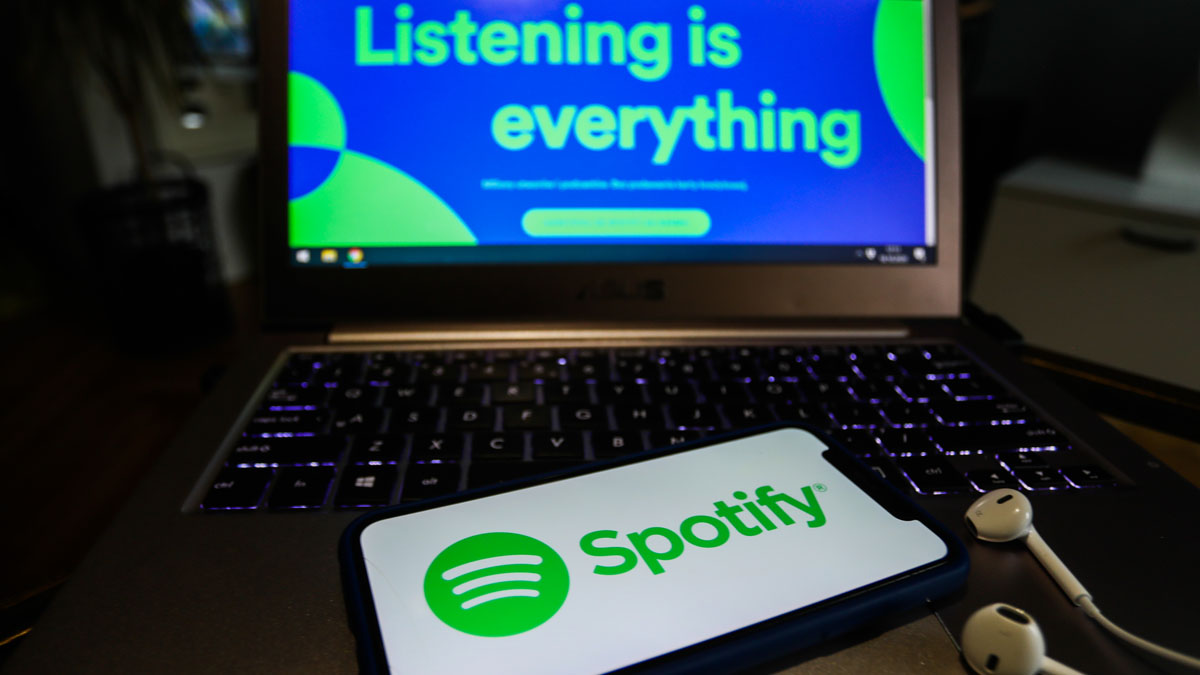New report warns that independent music artists are being squeezed out of streaming revenues
Major labels enjoy an “unfair advantage,“ with better playlist access allowing them to take the most subscription revenue

Want all the hottest music and gear news, reviews, deals, features and more, direct to your inbox? Sign up here.
You are now subscribed
Your newsletter sign-up was successful
A new report from the University of East Anglia has concluded that streaming platforms place independent music artists at a disadvantage, with structural advantages and enhanced access to playlists allowing major labels to take “the lion’s share of subscription revenue“.
The report, titled Music Streaming: Is It a Level Playing Field?, was authored by Professors Amelia Fletcher and Peter Ormosi from UEA’s Norwich Business School and Centre for Competition Policy, with Daniel Antal, CFA, co-founder of reproducible research startup company Reprex B.V.
It opened by noting the growing importance of streaming revenues. Streaming had revitalised the music industry. Global streaming revenues increased by around 50 per cent per annum, and yet fundamental adjustments were necessary in order to increase competition.
“Music streaming has become the most important route to market recorded music, and this position is likely to strengthen in future,“ said Professor Ormosi. “Music streaming platforms like Spotify pay the labels royalties that are calculated on a pro rata basis, as a proportion of the revenues associated with the streams of their content.
“We wanted to see how streaming platforms support or distort fair competition between different types of recorded music and their creators – whether they offer a level playing field for artists and labels.“

Accounting for around 67.5 per cent of overall global recorded music market, the big three of Universal, Sony BMG, and Warner have formidable negotiating power. The report recommended that major labels should divest their stock options in streaming platforms. Universal, it says, owns 3.5 per cent of Spotify, Sony Music 2.9 per cent stake, while Deezer is part-owned by Warner Brothers' parent company, Access Industries.
More transparency was needed with regards third-party playlist curation and algorithm-generated recommendations. The report expressed concern over Spotify's Discovery Mode feature, noting that labels and artists flagging priority tracks for the feature in exchange for a lower royalty rate was Spotify taking ”one step further towards commercialising access to playlists.”
Want all the hottest music and gear news, reviews, deals, features and more, direct to your inbox? Sign up here.
The researchers argued that pro rata revenue collection appeared fair but ultimately skewed revenues and incentivised anti-competitive practices. They advocated a “user-centric payment system” that ensured royalties from individual listener subscriptions would go direct to the artists and labels that they choose to listen to.
If competition is distorted it risks inhibiting innovation, variety and the prospects of upcoming and more niche artists
Professor Peter Ormosi
“A level playing field is important not only for artists but also, over the longer term, for consumers,“ continued Professor Ormosi. “If competition is distorted it risks inhibiting innovation, variety and the prospects of upcoming and more niche artists.“
As the former vocalist/guitarist of 80s indie bands such as Talulah Gosh and Heavenly, the report's co-author Professor Fletcher has some interest in streaming revenues. But it is the musicians who are working on their career today who are discovering that they cannot live by streaming income alone.
In November 2020, Mercury Prize-nominated artist Nadine Shah told a Department of Culture, Media and Sport Committee inquiry into the economics of music streaming, that, despite her profile, she struggled to pay her rent.
Further evidence was given by Elbow's Guy Garvey and Radiohead's Ed O'Brien, who said that streaming revenues were unsustainable and leaving young musicians on the brink.
“The earnings from my streaming are not significant enough to keep the wolf away from the door,“ said Shah. “[I am] an artist with a substantial profile, with a substantial fanbase, critically acclaimed, but I don’t make enough money from streaming. I am in a position now where I am struggling to pay my rent, and I am embarrassed to talk about these issues publicly. I am embarrassed.“
Jonathan Horsley has been writing about guitars and guitar culture since 2005, playing them since 1990, and regularly contributes to MusicRadar, Total Guitar and Guitar World. He uses Jazz III nylon picks, 10s during the week, 9s at the weekend, and shamefully still struggles with rhythm figure one of Van Halen’s Panama.
